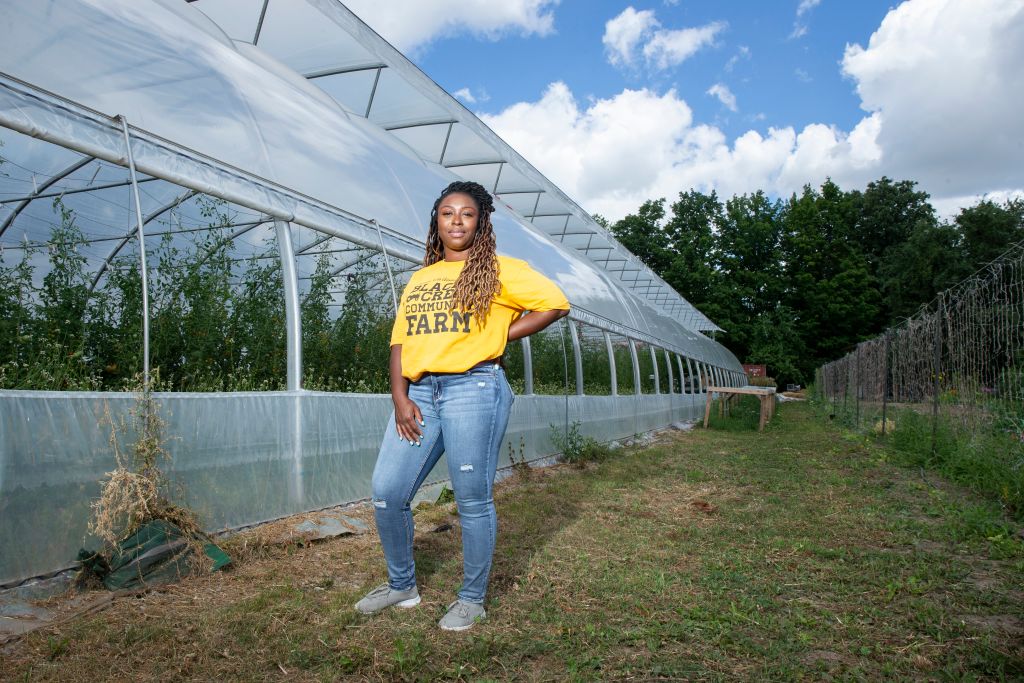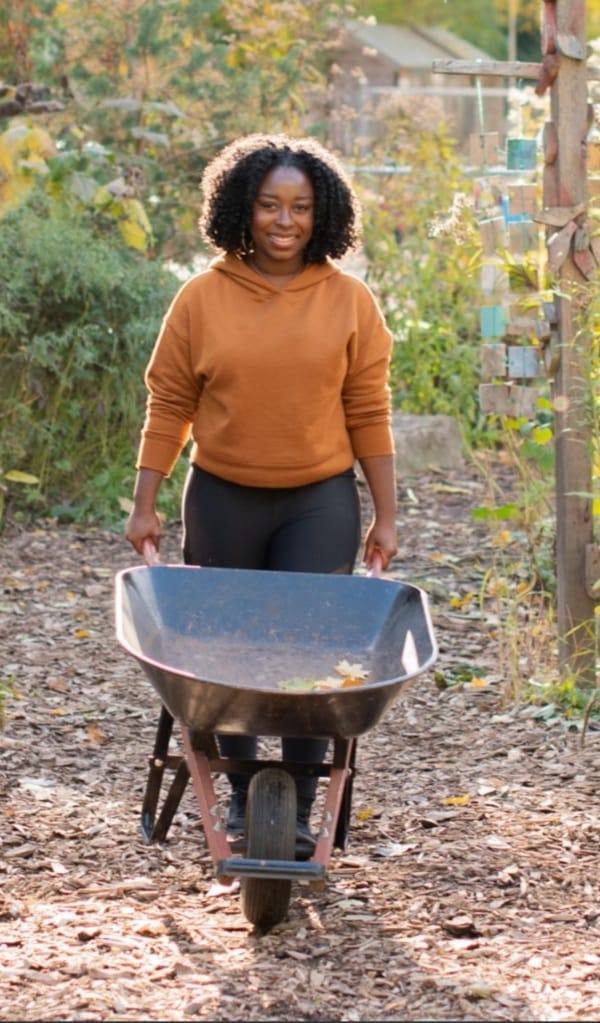
York alumna Ohemaa Boateng (BA ’17) has lived in the Jane and Finch community since she was a child. But it wasn’t until she started her role as a youth intern at Black Creek Community Farm that she would learn about food sovereignty and the challenges faced by marginalized people in her community.
As a youth intern, Ohemaa used her background in early childhood education to help steward the Farm School program, where she coordinated family and children activities and led the weekly farmers’ markets in front of Jane and Finch Mall and at Driftwood Community Centre. Currently, the program has evolved to educate various age groups on food preservation, food waste, growing native species and environmental stewardship.
“I think it's really beneficial for schools to teach and expand that section around food and growing and for kids to be more connected to their natural environment,” says Ohemaa. “I always think about what my experience was growing up in the community, and I didn't have access to these resources.”
Since her start at the farm, Ohemaa has advocated for fair access to fresh locally grown and affordable food and raised awareness to the food injustices experienced in the community by racialized residents. Today, Ohemaa is the executive director of Black Creek Community Farm where she leads the planning and oversees the operations of the farm.
“Being a Black woman and a single mom in the community, when it comes to food sovereignty or food justice, we are one of the most impacted groups,” says Ohemaa. “To be able to have a seat at the table to decide how to give back to my community with the food we grow and where we grow it, is really great, because we normally don’t have that control.”

But Ohemaa’s dedication to community work is not just limited to food sovereignty. As a single mother herself, she recognized the barrier to community involvement due to the lack of childcare available to parents. With support from Black Creek Community Farm, Ohemaa provided parents who wanted to get involved in their community with mobile childcare services through her initiative Baby Steps.
“I think it’s a privilege to be able to do something you love and see the impact that you have directly in your neighbourhood,” says Ohemaa. “There’s a lot of learning, when you’re directly involved with the people you impact.”
Ohemaa credits the development of her community engagement initiatives to the Criminology program she took at York University.
“A lot of the conversations coming out of Criminology were reflective of my community. I was able to see first-hand all the barriers and challenges that were captured in my learning,” says Ohemaa. “Learning the statistics and theories allowed me to identify these barriers in my neighbourhood and recognize where to focus my knowledge and expertise.”
Using this knowledge, Ohemaa developed her Turn the Page program, helping mothers who were incarcerated or living in transitional homes write their first children’s book.
“I found that the literacy rate among young parents in this demographic was low,” says Ohemaa. “This program is a way to bring attention to this demographic and support them with a writing mentor and illustrator to flush out their ideas.”
For Ohemaa, the most fulfilling part of her role is the ability to work and play in her neigbourhood. As a long-time resident of the Jane and Finch community, Ohemaa and her neighbours have established their own gardens where they plant, share seeds, and exchange the food they’re growing.
Ohemaa is also aiming to increase community representation on the farm’s steering committee by creating a space for young people to gain experience serving on a board.
“This is an opportunity to build youth leadership and have more young people engaged and be part of the decision,” says Ohemaa. “Make tables that they otherwise may not have access to.”
